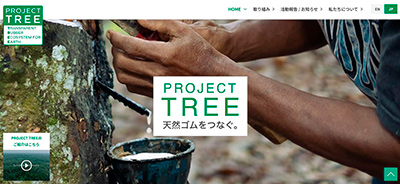Community Contribution
ITOCHU Corporation is engaged in activities that contribute to the communities in which we do business. In the spirit of ITOCHU’s founding corporate philosophy of “Sampo-yoshi (good for the seller, good for the buyer, and good for society),” we are contributing to the community (good for society).
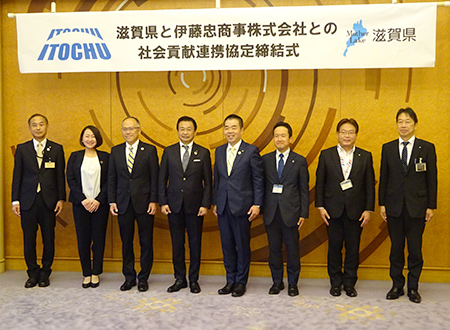
Activities with Shiga Prefecture
We have a social contribution partnership agreement with Shiga Prefecture, where our company was founded.
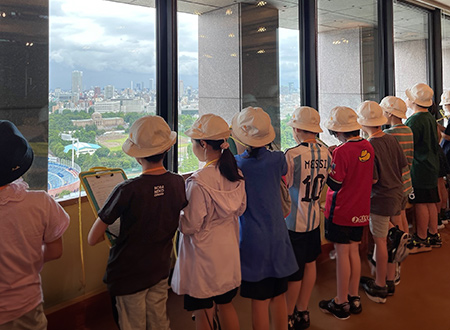
Activities in Minato City
We are engaged in activities that contribute to Minato City, the location of our Tokyo headquarters.
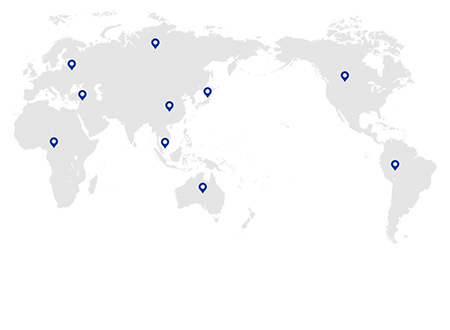
Activities of Overseas and Domestic Offices
ITOCHU employees are engaged in community contribution activities at ITOCHU offices around the world.
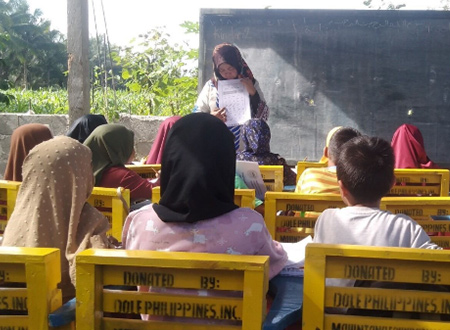
Local Job Creation and Employment
The ITOCHU Group, which conducts business on a global scale, is committed to contributing to local communities through local employment.
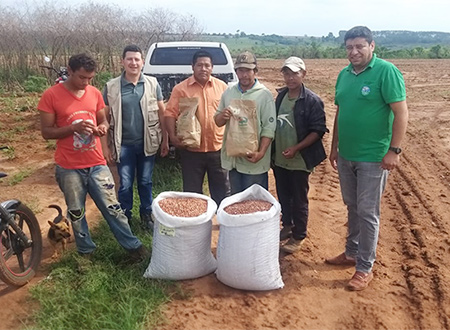
Capacity Building for Suppliers
We are working on training and education of suppliers to ensure stable procurement of products.
Local Job Creation and Employment
The ITOCHU Group works to make local contributions by local hiring during the diverse business activities we engage in around the world. We strive for coexistence with the local regions in which we operate and to contribute to the development of international society. The hiring of local employees leads to human resource development in the region and helps stimulate local economies, and we believe this contributes to sustainable development. When an ITOCHU Group company in Japan or overseas engages in business activities in a particular region, as the parent company, ITOCHU supports to formation of a management structure for ensuring that the company complies with relevant laws and provides an optimal labor environment for its employees. (Group companies report to division companies based on their operating domain and the division company provides direct support.) The ITOCHU Group is comprised of some 300 companies in Japan and overseas, and works to balance business and regional development by hiring and training local staff.
Pineapple Production Business Promoting Local Employment, Supporting Living Infrastructure, and Improving Productivity
The history of Dole Philippines’ pineapple division (Dolefil), which is part of the ITOCHU Group’s Dole International Holdings Corporation, dates back to 1963, when Dole Food Company first settled in Mindanao, the Philippines. Back then, Dolefil’s pineapple production required intense labor in a region where the business infrastructure is not well developed. For this reason, Dolefil consistently focused on harmonious coexistence with the region and has achieved sustainable business development over the past 60 years. For example, when the farmers start pineapple cultivation, it requires a fixed period of financial commitment (one cycle for every three years). Therefore, in addition to purchasing the harvest from farmers, Dolefil supports new pineapple farmers by lending them heavy machinery and providing them with know-how on how to improve production efficiency through a local cooperative, and also the stability of the cultivation business. At pineapple processing plants, Dolefil actively employs local residents (including indigenous people and ethnic minorities) and thoroughly trains them to maintain workplace safety and improve product quality. In addition, Dolefil runs a program to support the construction of housing for employees to simultaneously support their living infrastructure and improve their productivity.
Also, Dolefil is forming strong industry clusters in the region with wide-ranging initiatives conducted in collaboration with regional governments and the Mahintana Foundation, Inc. (below, MFI), an NGO spun out from Dolefil’s CSR department. These initiatives include industry and employment creation, environmental protection and forest restoration, education, livelihood support, employee benefits and health and safety.
For example, Dolefil endorses and participates in Brigada Eskwela initiative promoted by the Philippine Department of Education. This initiative, which helps public schools prepare for the new school year, began with employee-led activities such as classroom cleaning, painting, and donation of school supplies, and has now evolved into a joint program involving partners and volunteers. Additionally, in participating in Brigada Eskwela, Dolefil has created jobs by ordering chairs for the children from local woodworkers, and recycled materials by providing used pallets as wood for the chairs. In exchange for these donations, Dolefil is, among other initiatives, expanding participation in regional contribution by calling for children to take part in afforestation efforts and creating a cycle of employment creation by ordering saplings for reforestation from local vendors.
We are also carrying out initiatives targeting environmental conservation. Dolefil and MFI have led the “Ridge to Reef Project,” which has planted a total of 5.9 million trees and protected river banks since its inception in 2003. By controlling sediment runoff, the project aims to strengthen and promote environmental conservation, including water resource protection, biodiversity conservation, and protection of marine resources beyond that. This large project also involves regional governments, local businesses, and business partners. A portion of the donations for this project are used to support local nursery suppliers in seeding cultivation and procurement. This approach helps fulfill seeding demand for Dolefil’s afforestation efforts and also contributes to creating employment for regional citizens.
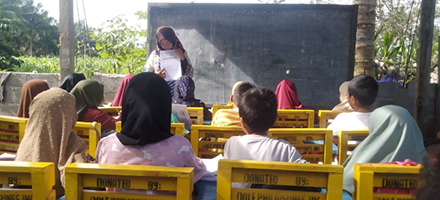
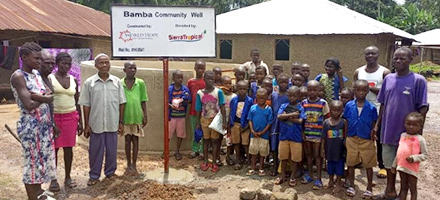
In addition, Sierra Tropical Limited provides local employment and vocational training at pineapple plantations and pineapple processing plants in Sierra Leone which was developed as the second source after the Philippines.
While Sierra Leone still struggles with poverty and high unemployment rates, the company has already hired more than 2,000 locals with salaries well above the local minimum wage and is expected to reach over 3,000 in the future. The project creates additional local employment, further improves the livelihood of the surrounding communities and has positive impacts in terms of poverty reduction.
For Details: IDA Private Sector Window Support for Dole Asia Holdings in Sierra Leone (worldbank.org)![]()
An Oil Project in the Caspian Sea, which Ensures a Stable Resource Supply and Contributes to Local Communities for Harmonious Cooperation
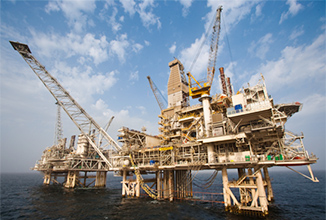
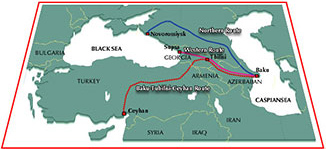
As a member of an international consortium operated by BP, ITOCHU Corporation participates in the ACG field, a crude oil development and production project in the Caspian Sea in Azerbaijan, and the BTC oil feed pipeline project.
Crude oil produced by the ACG project is supplied primarily to the European market via the BTC Pipeline, thus contributing to the stable supply of energy in the world. These projects operate in strict compliance with environmental and labor-related laws and industry standards, as well as initiatives to reduce carbon emissions from operations. In addition to contributing to the creation of local employment, both projects are involved in a number of activities that contribute to the local community, such as education and employment support, support for the agricultural industry, etc. As a unique initiative, we make annual social contributions through our subsidiaries. Recent examples include the donation of PCs to elementary and junior high schools and solar panels to national parks. In FYE 2024, the Company donated solar panels to Baku Zoo at the request of the Ministry of Environment and Natural Resources.
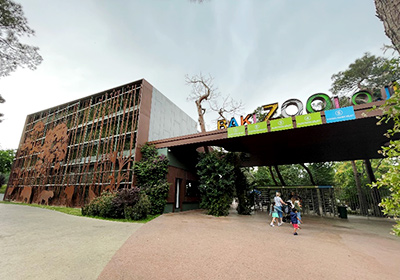
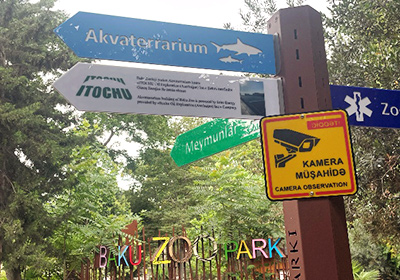
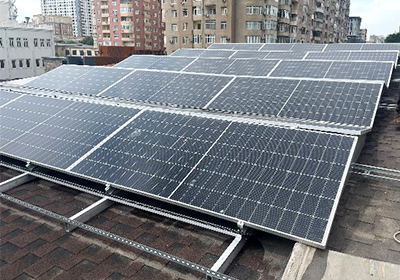
Capacity Building for Suppliers
Initiatives with Business Partners to Improve the Livelihood of Farmers in Sesame Producing Areas
Demand for sesame products in Japan is expected to continue to grow due to diversification of use and export demand. However, more than 99% of raw sesame seeds are imported, and stable procurement of high-quality, safe and reliable sesame in key production areas, such as Africa and Central and South America, is an issue. As a leading sesame importer, ITOCHU is supporting to help improve the livelihood of farmers in the producing regions for the stable procurement of sesame.
Providing Infrastructure to Sesame Producing Areas in Malawi
Malawi’s main industry is agriculture, and it is one of the production areas where sesame production has been increasing in recent years due to rising demand. However, Malawi is considered the least developed country in the world, and improvement of the living conditions of local farmers is essential for stable production.
ITOCHU, together with Takemoto Oil & Fat Co., Ltd. has established a system to support the improvement of the country’s livelihood infrastructure through local suppliers and NGOs. As a first step, ITOCHU provided emergency vehicles and medical equipment to a newly established health center in the Chikwawa district in FYE 2023. In FYE 2024, we constructed 9 wells to provide access to safe water. This means that fetching water, which used to take about 2~3 km each way in some places for about 2 hours, now takes only a few minutes, and the children can concentrate on their school work because of the reduced workload. In FYE 2025 and FYE 2026, while organizing farmers and providing farming and sales guidance to each group, we also constructed a warehouse to safely store and manage the sesame produced. This will support efficient sesame production and sales. We will continue to promote our initiatives in the future.
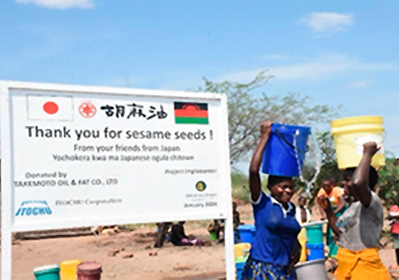
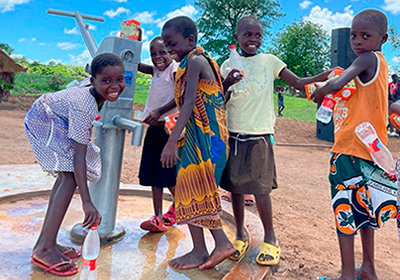


Support for Small Sesame Farmers in Paraguay
In Paraguay, the government is encouraging sesame cultivation as a measure to raise the standard of living in some rural areas. ITOCHU, together with Kadoya Sesame Mills Incorporated is supporting the Paraguayan Ministry of Agriculture and livestock and one of the suppliers, DULSAN ORGANICA S.A. in technical guidance to farmers and providing agricultural tools such as sowing machines and sifters, and seeds.
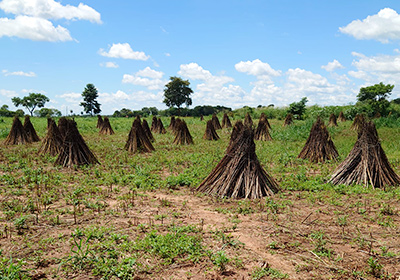
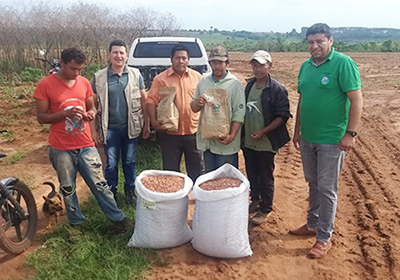
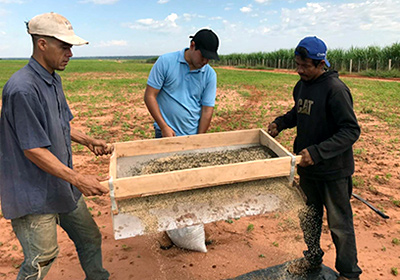
Support for the Development of the Next Generation of People in the Coffee Producing Areas of Ethiopia
Ethiopia is one of the world's leading coffee bean producing countries, and Ethiopian coffee beans are popular in Japan as “mocha” because of its characteristic aroma. However, there are concerns in the coffee producing areas that the production area will decrease due to climate change, known as the “coffee 2050 problem,” and the decrease in production volume and producers due to worsening productivity caused by disease and other factors, economic hardship, etc., is becoming a serious problem. One of the countermeasures against this problem is the need to improve the educational environment for obtaining knowledge of appropriate agricultural practices.
Therefore, continued from last year, ITOCHU and FamilyMart jointly donated 1 yen for every purchase of an eligible product at FAMIMA CAFÉ from October to December 2025, in conjunction with the Grant Assistance for Grassroots Human Security Projects (GGP), an initiative of the Embassy of Japan in Ethiopia. In addition to the construction of toilets and hand washing stations at the local Yakatit Elementary School, we implemented an empowerment program to support the future of local children in conjunction with International Day of the Girl Child on October 11.
ITOCHU has established its own procurement policies for coffee beans, including improved traceability, environmentally friendly procurement, and prohibition of child labor and forced labor, and will continue to supply safe, secure, and delicious coffee on a sustainable basis.



Human Rights Protection through Ethical Sourcing in the Natural Rubber Business
ITOCHU Corporation is promoting PROJECT TREE through its wholly owned subsidiary PT PROJECT TREE INDONESIA. This initiative aims to achieve traceability and sustainability of natural rubber, and certifies that natural rubber was produced in appropriate places and by appropriate methods. In addition, incentives are returned directly to the supply chain, and incentive funds are used appropriately to provide agricultural training and sustainability education activities to natural rubber producers. With this project, we will contribute to improving the sustainability of natural rubber by taking care of the producers in Indonesia.
For more details, please click here.

